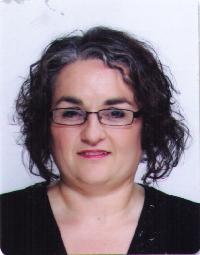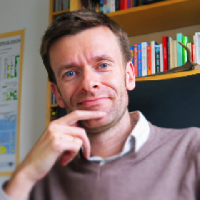| Pagina's in het onderwerp: [1 2] > | Now translators' work is being analysed by the BBC De persoon die dit onderwerp heeft geplaatst: Gillian Searl
|
|---|
Gillian Searl 
Verenigd Koninkrijk
Local time: 02:58
Duits naar Engels
http://news.bbc.co.uk/1/hi/world/europe/6498799.stm
"EU effusion 'lost in translation'
Some nations are more emotional than others, and keener on the EU
Sharp-eyed professors have spotted what they say is evidence of "political translation" of the EU's Berlin Declaration, agreed at the weekend.
Both the Danish and English versions downplay the emotion... See more http://news.bbc.co.uk/1/hi/world/europe/6498799.stm
"EU effusion 'lost in translation'
Some nations are more emotional than others, and keener on the EU
Sharp-eyed professors have spotted what they say is evidence of "political translation" of the EU's Berlin Declaration, agreed at the weekend.
Both the Danish and English versions downplay the emotional language of the original German, they say.
Instead of saying that the EU member states are united in "happiness", they say that they have united "for the better", or "for the best".
An EU spokesman said the texts had been agreed by the national governments.
"We, the citizens in the European Union, are united zu unserem Gluck ", the German-language version of the declaration reads. The phrase can be rendered in English as "united in our fortune/happiness".
By contrast, the English-language version reads: "We, the citizens of the European Union, have united for the better".
While in the Danish version, the word "Gluck" has been replaced with "'vor faelles bedste" meaning "for the best".
"
I really feel for those rushed translators who have to produce work that will be scrutinised by the press! So what did the original German really mean? And what would be the best translation?
Here's the link to the text:
http://www.eu2007.de/de/About_the_EU/Constitutional_Treaty/BerlinerErklaerung.html
It is unusual for the BBC to refer to Germans as "emotional" - surely that has to be a first!
Gillian ▲ Collapse
| | | |
I think the German implies that we are better off together than apart (for our common good), but not necessarily that everyone is "happy." I'd like to hear German native speakers' opinion of this.
I checked the Latvian - it's closer to the German: "we are fortunate to be united/unified."
[Edited at 2007-03-29 13:48]
[Edited at 2007-03-29 13:50]
| | | | Heinrich Pesch 
Finland
Local time: 04:58
Lid 2003
Fins naar Duits
+ ...
| for our happiness | Mar 29, 2007 |
The Finnish version is true to the original (even though Finns are the most skeptic of the EU-community).
On onni olla yhdessä - its fortunate to be together.
Reminds me of the Declaration of Independence, does it not include something about happiness?
Cheers
Heinrich
I'm happy this week is over soon.
| | | | Thomas Pfann 
Verenigd Koninkrijk
Local time: 02:58
Lid 2006
Engels naar Duits
+ ...
| Concept of 'happiness' not implied in the source (IMO) | Mar 29, 2007 |
Quote from the BBC article:
"We, the citizens in the European Union, are united zu unserem Gluck ", the German-language version of the declaration reads. The phrase can be rendered in English as "united in our fortune/happiness".
By contrast, the English-language version reads: "We, the citizens of the European Union, have united for the better".
While in the Danish version, the word "Gluck" has been replaced with "'vor faelles bedste" meaning "for the best".
I don't know where they get the idea from that the German original ("Wir Bürgerinnen und Bürger der Europäischen Union sind zu unserem Glück vereint") is about happiness.
Literally the phrase "zum Glück" [or here "zu unserem Glück"] just means something like "luckily/fortunately". So the whole sentence would be more like "it is to our benefit that we, the citizens of Europe, have united". That's not too far from saying "we are united for the better/for the best", is it?
The Spanish translation "Los ciudadanos y ciudadanas de la Unión Europea, para fortuna nuestra, estamos unidos" seems to be closer to the original in that respect. But how else could you say it in English? After all, the text should sound natural rather than "translated", shouldn't it?
-----------------
Edit: You could probably paraphrase the German as "Wir [...] sind zu unserem Wohle vereint", which in my opinion is meant here and which translates as "we are united to our own benefit = we are united for the best".
[Edited at 2007-03-30 07:05]
| | |
|
|
|
Lia Fail (X) 
Spanje
Local time: 03:58
Spaans naar Engels
+ ...
| translation universals | Mar 29, 2007 |
Gillian Noameshie wrote: http://news.bbc.co.uk/1/hi/world/europe/6498799.stm "EU effusion 'lost in translation' Some nations are more emotional than others, and keener on the EU Sharp-eyed professors have spotted what they say is evidence of "political translation" of the EU's Berlin Declaration, agreed at the weekend. Both the Danish and English versions downplay the emotional language of the original German, they say. Instead of saying that the EU member states are united in "happiness", they say that they have united "for the better", or "for the best". An EU spokesman said the texts had been agreed by the national governments. "We, the citizens in the European Union, are united zu unserem Gluck ", the German-language version of the declaration reads. The phrase can be rendered in English as "united in our fortune/happiness". By contrast, the English-language version reads: "We, the citizens of the European Union, have united for the better". While in the Danish version, the word "Gluck" has been replaced with "'vor faelles bedste" meaning "for the best". " I really feel for those rushed translators who have to produce work that will be scrutinised by the press! So what did the original German really mean? And what would be the best translation? Here's the link to the text: http://www.eu2007.de/de/About_the_EU/Constitutional_Treaty/BerlinerErklaerung.html It is unusual for the BBC to refer to Germans as "emotional" - surely that has to be a first!  Gillian
This may, in part, respond to what are referred to as "translation universals", what translators (irrespective of language combination) tend to do with texts:
" .....a branch of Translation Studies dealing with the so-called translation universals, i.e. phenomena with a higher distribution in translated texts than non-translated texts, disregarding the source language, is trying to answer. Potential translation universals include on the one hand simplification, conventionalization, lexical phrases untypical of the target language, lower distribution of lexis specific to the target language (all that compared with non-translated texts in the same language) and on the other hand text lengthening, interference, standardization, explicitation, dialect normalization, narrative point of view simplification, use of more conventional collocations, reduction of repetition (compared with source texts). ..... " http://is.muni.cz/predmety/predmet.pl?kod=AJ29083&fakulta=1421&jazyk=en
See "What are translation universals?"
http://www.biu.ac.il/hu/stud-pub/tr/tr-pub/bloch-split.htm#_Toc123889309
Fo more info: search Google for:
translation universals normalization simplification explicitation
[Edited at 2007-03-29 15:06]
| | | | | In Italian... | Mar 29, 2007 |
'per nostra felicità' - for our happiness... for me, this is clearly a mistranslation, since I tend to agree with Thomas.... it should have been 'per nostra fortuna' - luckily. I think the English translation is quite correct.
Giovanni
| | | | Melzie
Local time: 03:58
Frans naar Engels
+ ...
They can talk...
Have you ever seen their children's TV DVDs in another language?
Just watch the telletubbies in French and cringe!
At least the translator in question seems to be trying to get the feel of the thing
| | | | Mats Wiman 
Zweden
Local time: 03:58
Lid 2000
Duits naar Zweeds
+ ...
In memoriam | Thomas is absolutely right | Mar 29, 2007 |
and BBC talks through its hat.
Although I am not a native German speaker I am absolutely certain that the translation should be:
Wir Bürgerinnen und Bürger der Europäischen Union sind zu unserem Glück vereint.
=
We, the citizens of the EU, are fortunately united
Mats
| | |
|
|
|
Heinrich Pesch 
Finland
Local time: 04:58
Lid 2003
Fins naar Duits
+ ...
What Merkel meant, is not the same as "glücklicherweise" or "zum Glück", which would mean, we were "just lucky". The intention seems to me, that the purpose is happiness.
If you replace "unser" bei "Menschen", it becomes quite clear. Then it would say "zum Glück der Menschen vereint", which implies a purpose and reflects the intention of the founders of the EU.
But Euro-skeptics anyway will say, that the EU is bad luck, so in English even "fortunate" in relation to ... See more What Merkel meant, is not the same as "glücklicherweise" or "zum Glück", which would mean, we were "just lucky". The intention seems to me, that the purpose is happiness.
If you replace "unser" bei "Menschen", it becomes quite clear. Then it would say "zum Glück der Menschen vereint", which implies a purpose and reflects the intention of the founders of the EU.
But Euro-skeptics anyway will say, that the EU is bad luck, so in English even "fortunate" in relation to the EU is a very bold and unnecessary positive statement.
What I cannot understand, is that someone thinks the German less emotional than the British. Were's the stiff upper lip? From the German point of view the British are as unemotional as the Japanese. Never showing their real feelings.
Cheers
Heinrich
[Bearbeitet am 2007-03-30 06:23] ▲ Collapse
| | | | | Pursuit of happiness for Heinrich | Mar 29, 2007 |
Heinrich Pesch wrote:
Reminds me of the Declaration of Independence, does it not include something about happiness?
Yes, it says "We hold these truths to be self-evident, that all men are created equal, that they are endowed by their Creator with certain unalienable Rights, that among these are Life, Liberty and the pursuit of Happiness."
| | | | | Zu unserem Glück | Mar 29, 2007 |
I guess this somewhat special phrase is meant to imply both:
zum Glück - fortunately
um unser Glück zu machen - to achieve happiness or to be successful
Therefore, I think the translation quite fine: It conveys what was meant and sounds like English to me. Maybe the reviewers are no experts.
| | |
|
|
|
| And you meant to say? | Mar 29, 2007 |
Lia Fail wrote: This may, in part, respond to what are referred to as "translation universals", what translators (irrespective of language combination) tend to do with texts: " .....a branch of Translation Studies dealing with the so-called translation universals, i.e. phenomena with a higher distribution in translated texts than non-translated texts, disregarding the source language, is trying to answer. Potential translation universals include on the one hand simplification, conventionalization, lexical phrases untypical of the target language, lower distribution of lexis specific to the target language (all that compared with non-translated texts in the same language) and on the other hand text lengthening, interference, standardization, explicitation, dialect normalization, narrative point of view simplification, use of more conventional collocations, reduction of repetition (compared with source texts). ..... " http://is.muni.cz/predmety/predmet.pl?kod=AJ29083&fakulta=1421&jazyk=en
Nice theoretical linguistics, but where is the connection to this case? 
| | | |
I think in German they are just expressing their good feelings about being united. They are definitely not saying that it is for the better, in my opinion.
What I would like to know is why do the translations differ to that extent. Is it really because the translators were rushing/incompetent, or could it rather be that their translations were edited by people who are not necessarily translators but who could be political advisors, for instance? This latter possibility is a v... See more I think in German they are just expressing their good feelings about being united. They are definitely not saying that it is for the better, in my opinion.
What I would like to know is why do the translations differ to that extent. Is it really because the translators were rushing/incompetent, or could it rather be that their translations were edited by people who are not necessarily translators but who could be political advisors, for instance? This latter possibility is a very plausible one... ▲ Collapse
| | | | | Our beloved leaders ... and the Teletubbies | Mar 30, 2007 |
Viktoria Gimbe wrote:
I think in German they are just expressing their good feelings about being united. They are definitely not saying that it is for the better, in my opinion.
What I would like to know is why do the translations differ to that extent. Is it really because the translators were rushing/incompetent, or could it rather be that their translations were edited by people who are not necessarily translators but who could be political advisors, for instance? This latter possibility is a very plausible one...
I agree with you, Viktoria.
Our current beloved leaders (at least in the UK) are noted for their love of "spin" - i.e. putting their desired slant on the content or timing of what they announce, so it's not at all unlikely that "spin" is also applied to translations of political texts.
Another post in this thread asks if anyone has ever cringed at the French version of the Teletubbies. Doesn't everyone cringe at the Teletubbies - in any language? Not that many words of any kind are used in that highly educational food for our unglückliche kinder. (Excuse my German - not actually one of my working languages).
Regards, Jenny.
| | | | | Pagina's in het onderwerp: [1 2] > | To report site rules violations or get help, contact a site moderator: You can also contact site staff by submitting a support request » Now translators' work is being analysed by the BBC | Wordfast Pro | Translation Memory Software for Any Platform
Exclusive discount for ProZ.com users!
Save over 13% when purchasing Wordfast Pro through ProZ.com. Wordfast is the world's #1 provider of platform-independent Translation Memory software. Consistently ranked the most user-friendly and highest value
Buy now! » |
| | Protemos translation business management system | Create your account in minutes, and start working! 3-month trial for agencies, and free for freelancers!
The system lets you keep client/vendor database, with contacts and rates, manage projects and assign jobs to vendors, issue invoices, track payments, store and manage project files, generate business reports on turnover profit per client/manager etc.
More info » |
|
| | | | X Sign in to your ProZ.com account... | | | | | |













